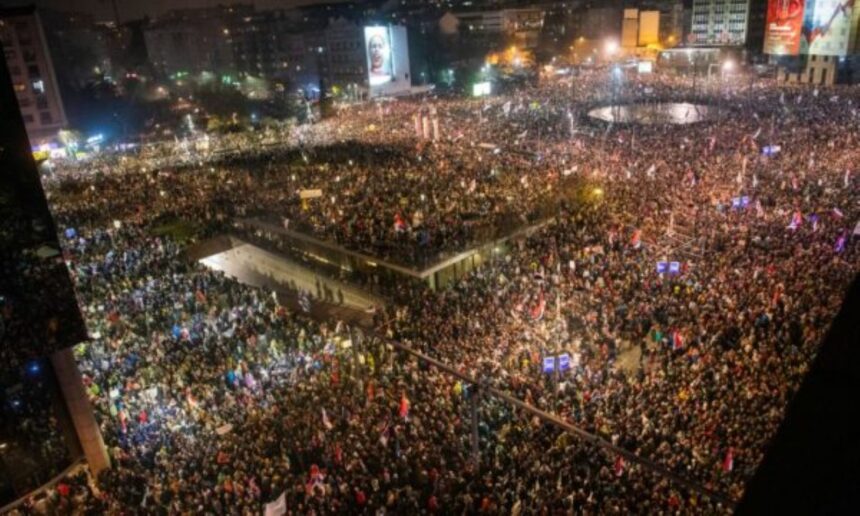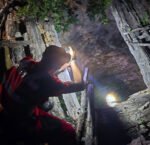What began as a tribute to the 16 victims of the November 1, 2024, Novi Sad railway station tragedy, where a renovated canopy collapsed, has transformed into a historic movement challenging the political fate of Serbian President Aleksandar Vučić’s regime. After six months of continuous protests, students leading university blockades nationwide have officially demanded snap parliamentary elections. Expectations are high for the protest scheduled for June 28 – Vidovdan Day, with signs suggesting it could mark a turning point for Serbia.
From Mourning to Revolt
The Novi Sad tragedy was initially perceived as another incident without consequences for the authorities. However, public reaction quickly took an unexpected turn. The symbolic actions of “16 minutes of silence,” held daily on main city streets to honor the victims, evolved into centers of resistance. The turning point came when students commemorating victims outside the Faculty of Dramatic Arts in Belgrade were physically attacked by individuals linked to the Serbian Progressive Party (SNS). This incident sparked the initial blockade of that faculty, followed by solidarity from other state and private universities across the country.
Student Demands and Regime Response
Students have presented a clear list of demands:
- Publication of documentation for the Novi Sad railway station reconstruction.
- Arrest of attackers who assaulted students and professors on November 22.
- Release of those arrested during protests.
- 20% increase in funding for public universities.
Despite government claims of fulfilling some demands, students and civil society deem this a manipulation, as none of the fundamental demands have been truly met. Instead, repression has intensified: two female students were hit by cars in Belgrade during protests, while in Novi Sad, a young woman was beaten with a metal rod by SNS activists.
Escalation and Call for Elections
After months of mobilization, protests expanded from Belgrade to cities like Novi Sad, Niš, and Kragujevac. A large protest in Belgrade on March 15 saw demonstrators accuse authorities of using acoustic weapons against peaceful crowds, an incident for which students demanded an independent investigation. Students also sought an investigation into Vučić’s visit to a North Macedonian hospital, where patients injured in a fire were allegedly used for a media spectacle.
On May 1, students officially called for snap parliamentary elections, emphasizing that “democracy is the only way to resolve the deep political crisis.” They have warned they will support an electoral list that represents their demands in the Assembly.
Vidovdan as a Symbol of Resistance
Students have announced a major protest for June 28, Vidovdan Day, a symbolic date in Serbian history. “This will not be a protest like any other. Something unexpected will happen,” said one student representative. Vučić has reacted by stating they “have no chance” and warned that the government will not organize elections before the regular term, which is a year and a half or more away.
Sociologist Dejan Bursač from the Institute for Philosophy and Social Theory believes Serbia has entered a new phase of political battle. “Students have changed the terrain – they have brought the courage to confront power and have liberated people from fear. This is why the Vučić regime is shaking – because it can no longer control the narrative and the electorate as before,” Bursač stated. He emphasizes that while it is still too early to predict the political outcome, one thing is certain: “This ignited fire will not be easily extinguished.”







